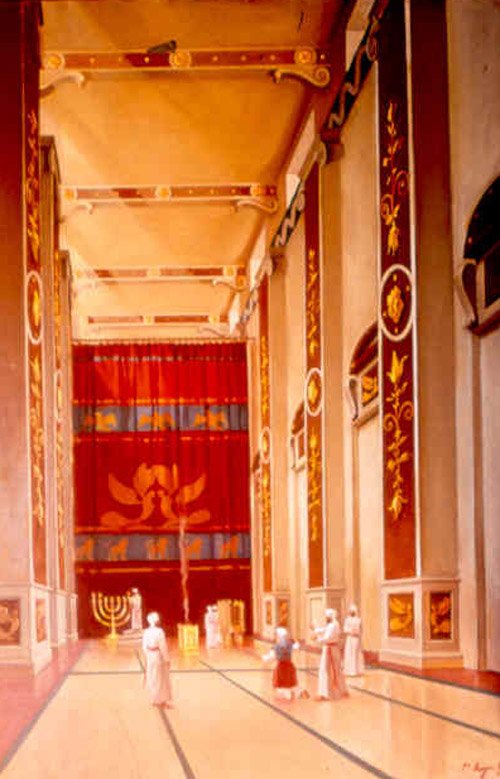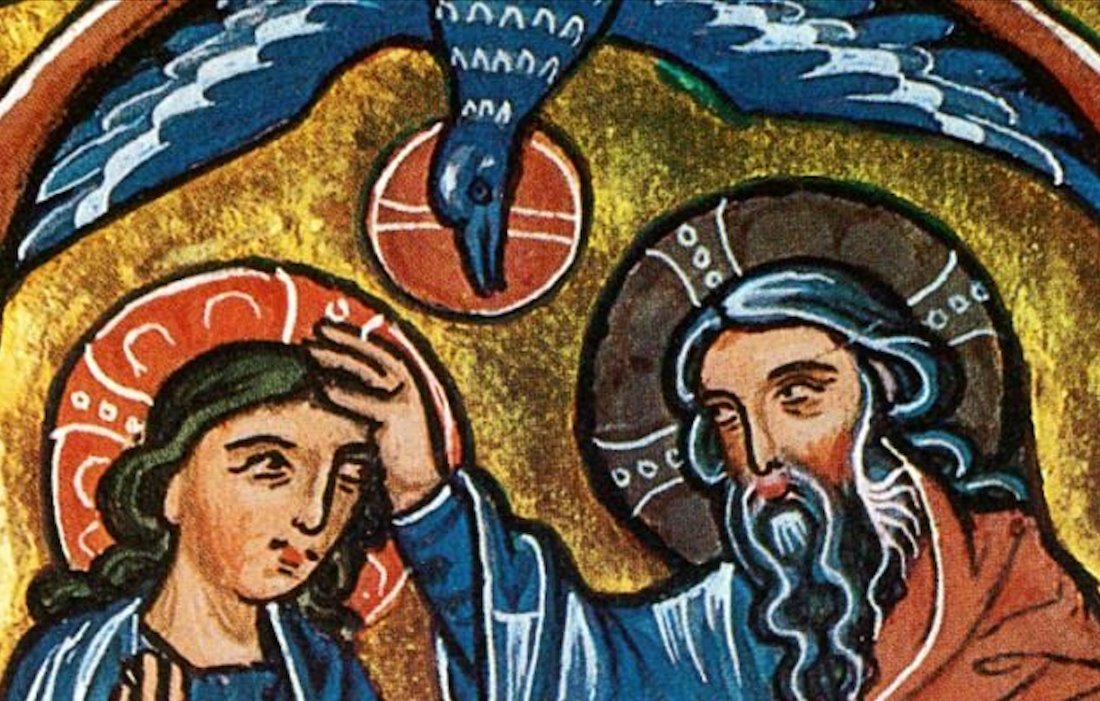From a personal encounter to community life.
If the whole foundation of Christianity rests on the principle of a personal encounter with the risen Christ, the fact remains that from the very beginning of the church, those who experienced this encounter wanted to come together.
At no point in the Bible do those who receive Christ seek to isolate themselves and live out their faith individually. In fact, on the very opposite, they come together to “put all things in common”!
The expression “they have all things in common” is found almost word for word in several passages in the Book of Acts.
They are textually and conceptually related to each other. In direct connection with the miracle of Pentecost and Simon Peter’s first preaching[1], Luke sums up the main characteristics of the community of the first Christians in Jerusalem: they are assiduous in the Apostles’ preaching, in their meetings together, in the breaking of bread and in prayer.

The fear of God seems to be in everyone’s heart, and many wonders and miracles are performed by the Apostles. All those who believe have put everything in common. They sell their land and possessions and divide the proceeds according to each person’s needs. Every day, all together, they attempt the temple and break bread in their homes (communion). They eat with joy and simplicity of heart, and praise God together.
Their testimony to the radical change of life so demonstrated brings them favor with all the people. As a result, the Lord daily added to their number those who gave themselves to him”.
The Greek word “koinonia” (community) is only used by Luke in this instance. As the turn of phrase “hapanta koina” (all in common) affirms, this means more than just personal harmony in the sense of loving one another.
The concept is taken a step further with a social vision and use of private property. The distribution of revenues from sales to the needy is therefore an integral part of this community, in the same manner as the preaching of the apostles, the breaking of bread, prayer and mission. It is for this reason that the community, as stated in verse 47, receives the favor of the entire Jewish people.
This shift in paradigm is the effect of the Holy Spirit poured out at Pentecost.
By sharing their possessions, they demonstrate to everyone that they have received the promised Spirit, and that they are following the call to conversion.
Paul, in his first epistle to the Thessalonians, speaks of the process of conversion using the Greek term “epistrepho”, which can be translated in two ways.
To turn away, in the sense of making a U-turn, or to turn towards someone, towards a solution, etc.
In the first case, it refers to the notion of abandoning one direction in order to move in the opposite direction. In the second case, the notion is of choosing a person (in the sense of taking sides).
The evangelical meaning of the word, we can realize, implies these two complementary notions in the outcomes that should flow out of our conversion. We must indeed take God’s side, and to do so, we must turn away from the idols we have served until now.
One of these idols, which has been served by everyone since the Garden of Eden, is the pursuit of independence: Mammon!
This Aramaic concept for wealth is often quoted in Jewish literature in a pejorative sense. It is found in the Gospels in the same sense, where it personifies the money that enslaves the world.
“No man can serve two masters:
La Bible
for he will always hate the one and love the other.
One cannot serve God and Mammon at the same time”. [3].

By directly opposing God and Mammon, the Lord shows us that it’s not just about money, as some translations suggest.
It’s not only the material wealth that is personified in a deity to whom men are likely to devote their lives, but also the quest through it for independence from God. Its worship corresponds in the Torah to the cult of the Golden Calf.
We don’t need a God, with all his requirements, we can make one for ourselves and keep control!
After all, Mammon does want something. He is not just a thing, or even a system, but a power of will at work in history.
And what it wants, above all, is to separate the abundance of blessing that God wants for His children from dependence on the one who is Adonai Jireh, The Eternal Provider.
By putting material possessions and the independence they constitute in their rightful place, the Christians of the first church are simply putting into practice what Jesus explained to them when he said:
“You cannot serve two masters…”
This is one of the reasons why I’ve always had issues with the so call gospel of prosperity, as it’s often preached.
While I believe that the Father wants me to prosper “Body, Soul and Spirit” – the whole Bible attests to this – He certainly doesn’t want this prosperity to become a goal in itself. And even less a “tangible” sign of the quality of my relationship with Him.
When I hear ministers today proclaim that their personal wealth, the magnificence of their church, or the bank account of their ministry are proof of God’s approval, I want to cry!
Then I remember all those bush pastors I met in Madagascar, who walked dozens of miles to preach the gospel, and for whom prosperity meant having a roof over their heads and rice for every meal for their families and the needy people around them.
The fact is that for far too long, in pursuit of our own personal contentment, we have exercised a form of worshipping that has little to do with what God has expected of us.
Some time ago, I heard Father tell me that we (the church) had replaced “communion” with ” reunions” and that we expected Him to bless our gatherings nonetheless. I think there’s some real thinking to be done on this if we’re to live up to God’s plan in these times.
In search of a “lost paradise…”.

As I’ve already mentioned, we’re constantly in pursuit of lost happiness. This was already the case when the first city in the Bible was built by Cain to combat the wandering he was condemned to after killing his brother[4].
Rather than submit to God, the humankind always seeks a palliative for the consequences of its rebellion.
The city is the place where people try to build their happiness without God. Victor Hugo had already noticed this when, in “The Legend of the Ages”, he wrote of the city built by Cain:
“The door was engraved with the words ‘God forbidden to enter’.
The second city mentioned in the Bible is Babel. It is the symbol of mankind building a tower to make a name for themselves, a place from which God is obviously excluded.
It’s interesting to note that in chapter 10 of the book of Genesis, which narrates the establishment on earth by the sons of Noah, it is said that each family populated the earth according to the language of each, according to their clans in their nations. Therefore, even before Babel, we can see that each family already had its own language.
Rabbinic commentaries describe the Babel society as a totalitarian project in which the human person disappears behind the enterprise. For this project to come to reality, the first thing to be done was to unify everyone around the same language. It reminds me of the “Mao jacket”, the emblem of triumphant Maoism, which became the uniform of the Great Proletarian Cultural Revolution, and whose ravages are well known.
To build this tower, the builders of Babel naturally chose bricks! But God builds with living stones. How many “Babel” churches have we built since the gospel was given to us?
To make a name for ourselves, in common language, even has a rather positive connotation, synonymous with making a reputation, being known, being successful!
From ministries that want to make a name for themselves to people who want to find their lost paradise, which seems to be mankind’s main motivation again and again, it’s no wonder why the church has become the institution we know it to be today.
All the ingredients were there for a nightmare. Endoctrination and abuse have left an indelible mark on the church, and in the view of those who no longer want to hear about it today, there’s nothing good to be found within it, they say. We’ve all known friends, parents, brothers and sisters in Christ, who one day end up declaring: “God, yes, but the church…, well, not for me »!
And let’s face it, we’re often at a loss for how to respond.
And yet, the road to Eden is within our reach and their. We could go back and bring in all those people who have been wounded by 16 centuries of institutions. It’s up to us to lead them…
Beyond the curtain, the paradise regained.
“Then the Lord God drove him out of the Garden of Eden to work the ground from which he had been taken.
And when he had driven the man out, he set cherubim on the east side of the Garden of Eden, with a flaming sword whirling in every direction, to bar the way to the tree of life.”[5]
As we have just read, paradise lost is the direct consequence of mankind’s sin. God may have kept his love for Adam and Eve, but the consequences are there for all to see. Cherubim, armed with flaming swords, stand guard at the entrance to Eden. Things will never be the same again.
Yet it seems that the door is not closed for good. God continues to visit these men whom He loves more than anything. He even makes them a promise.
“The Lord said to Cain: Why are you angry and why is your face dark? If you act well, you will raise him up. But if you don’t act well, sin is lurking at your door: its desire is for you, but you dominate it.
Do you know what was embroidered on the veil separating the Holy Place from the Most Holy Place, where God’s presence dwelt?Cherubim!

“You shall make a veil of purple and scarlet, bright red and fine twisted linen, adorned with cherubim, according to the rules of the art and hang it from four gold-plated acacia pillars, fitted with gold hooks and set on four silver pedestals.Fix the veil under the clasps. There, behind the veil, you will place the chest containing the covenant. This veil will serve as a partition between the Holy Place and the Most Holy Place”[7].
It is this same veil, behind which Jesus entered with his own blood, which was torn from top to bottom, and which today gives us access beyond the veil.
The veil of the Temple was a constant reminder of the sin that separated humanity from the presence of God. Jesus Christ, by his death, toppled the barrier between God and man, so that now we can approach him with confidence and boldness[8].
This is where our “lost paradise” is!
We have no need to look elsewhere.
[1] Actes 2 : 14
[2] Tiré d’Acte 2 : 42-47 et 4 32-35
[3] Matthieu 6:24.
[4] Genèse 4, 17
[5] Genèse 3 : 23-24
[6] Genèse 4 : 6-7
[7] Exode 26 : 31-33
[8] Hébreux 4.14-16.

Wonderful words of wisdom and revelation. I can see why my son ( Darin Dykstra) learns so much from your ministry. God bless you,dear Brother. Let the Lord always speak through you.